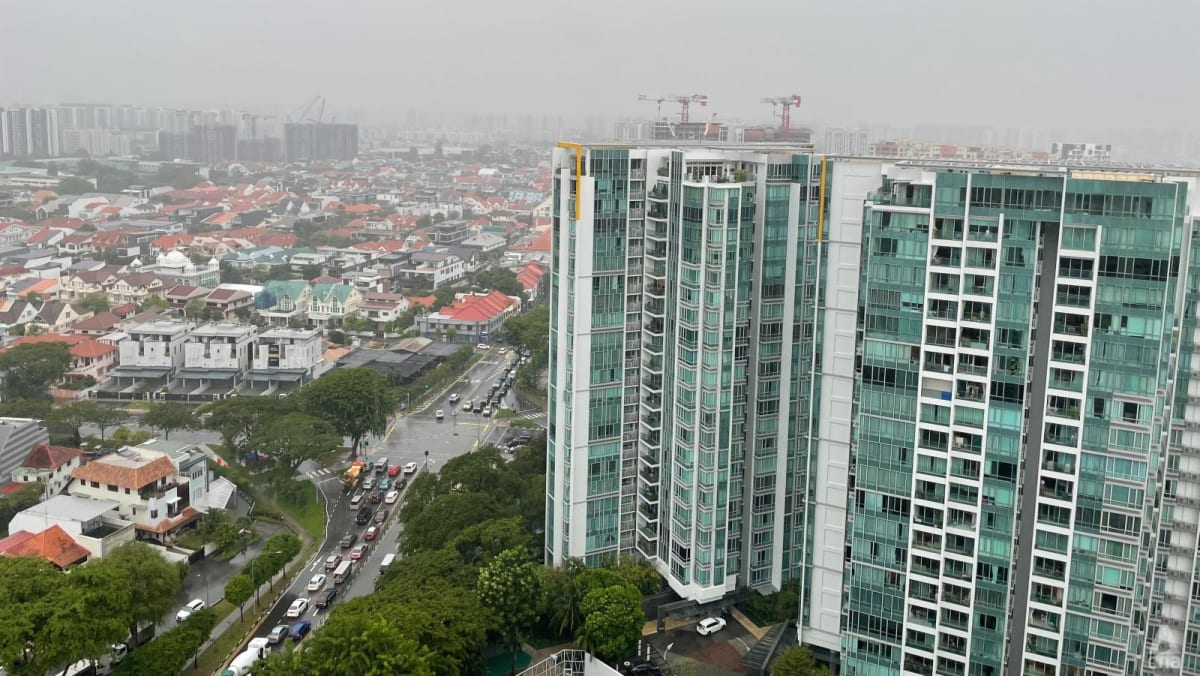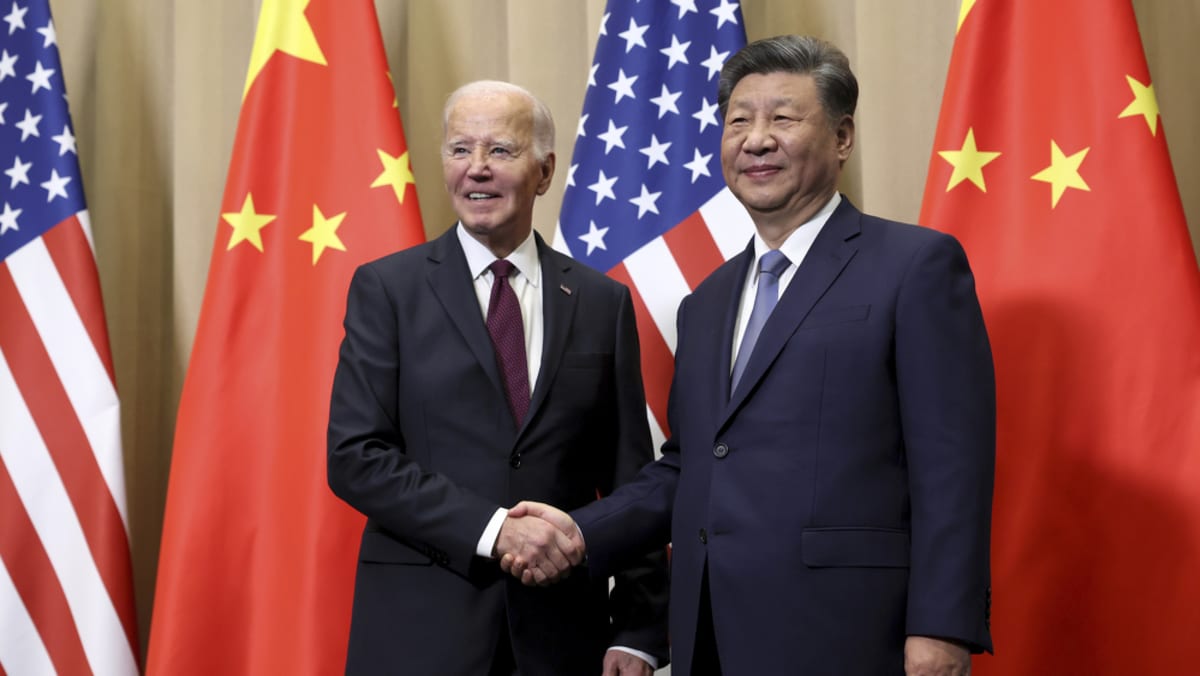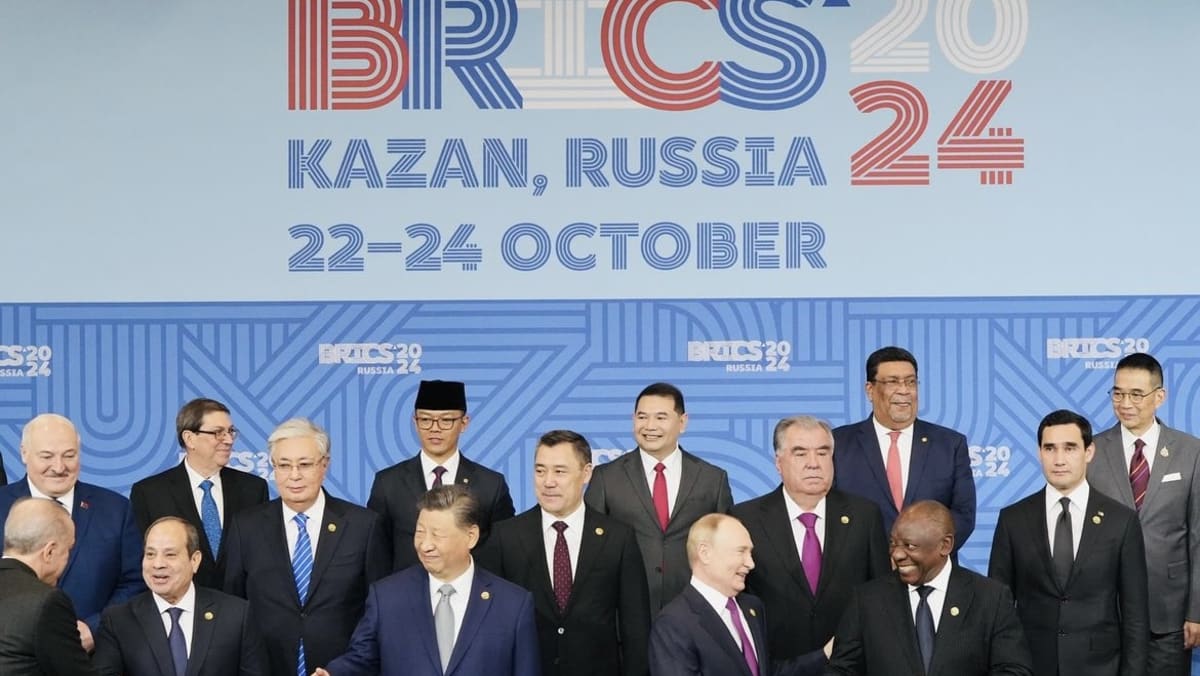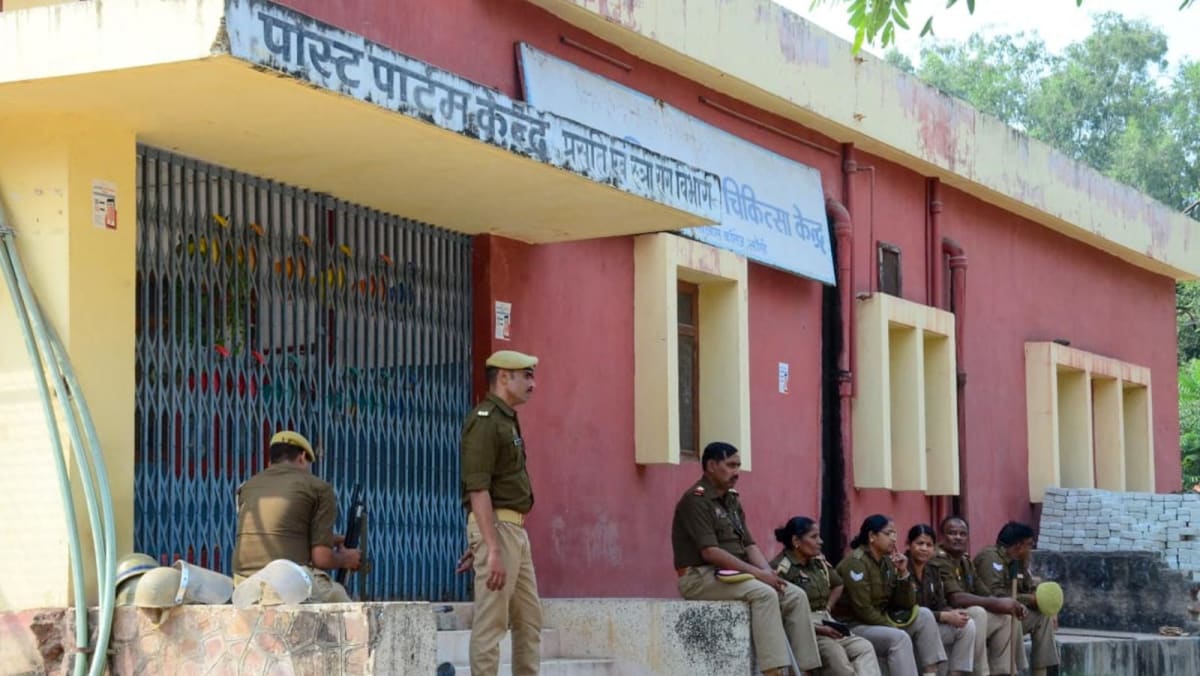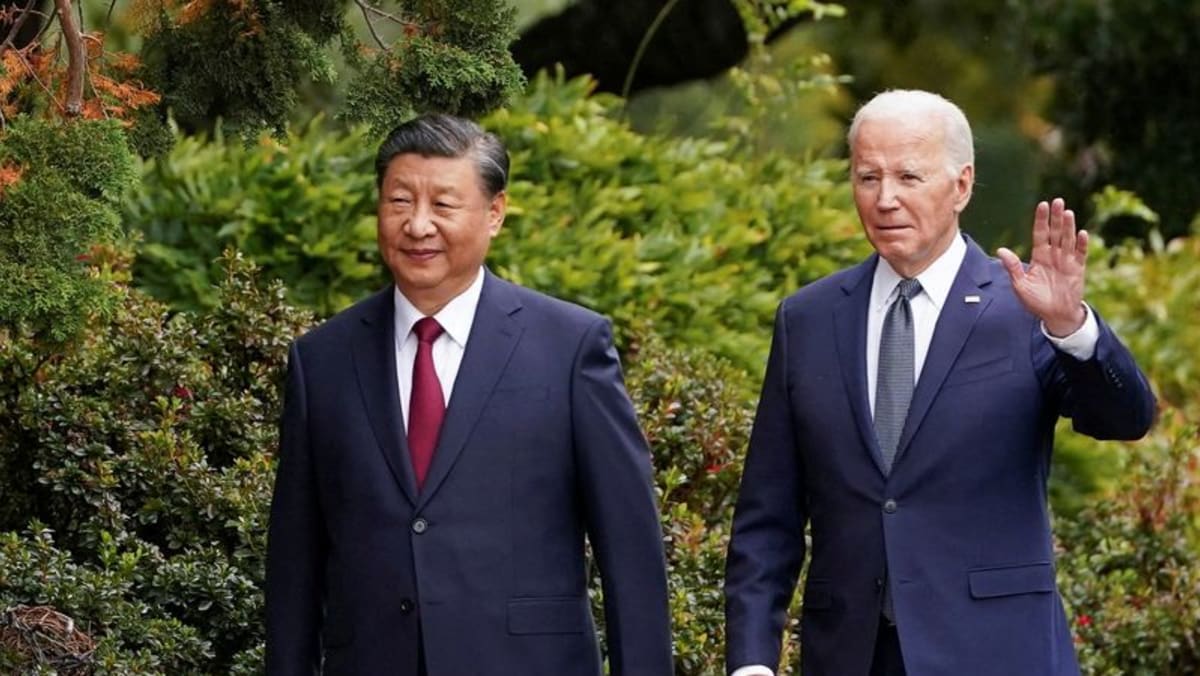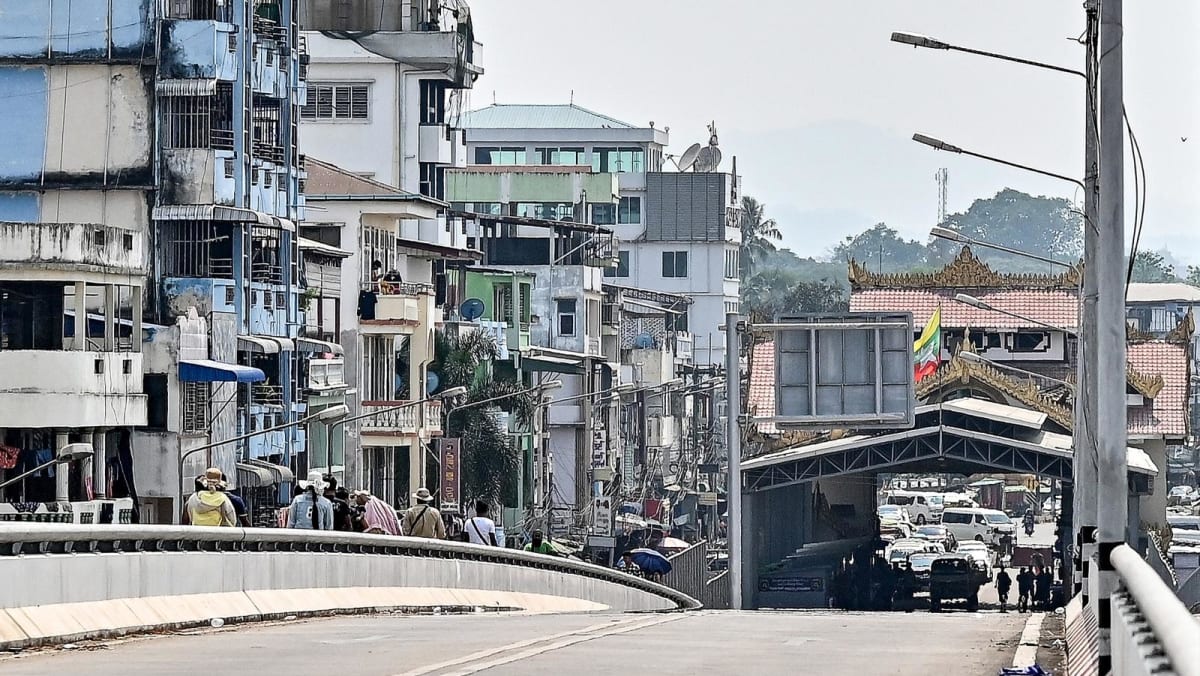MAJOR ISSUES
Other major issues raised at the meeting included a recent China-linked hack of the telephone communications of US government and presidential campaign officials, stepped-up pressure by Beijing on Taiwan and in the South China Sea, as well as Chinese support for Russia. Biden also raised the cases of Americans he believes are wrongly detained in China.
On Taiwan, the leaders appear to have had a sharp exchange. Biden called for an end to Beijing’s “destabilising” military activity around the island, the White House said.
Xi said the “‘Taiwan independence’ separatist activities” of Taiwanese President Lai Ching-te were incompatible with peace and stability there, according to the Chinese foreign ministry. Lai plans to stop in the US state of Hawaii and maybe Guam on a sensitive visit that is sure to anger Beijing in the coming weeks, Reuters reported on Friday.
Taiwan’s former Economy Minister Lin Hsin-i met Biden at the summit on Friday and invited him to visit Taiwan in the near future.
China views democratically governed Taiwan as its own territory. The US is Taiwan’s most important international backer and arms supplier, despite the lack of formal diplomatic recognition. Taiwan rejects China’s sovereignty claims.
At the same time, Beijing’s economy is taking a stiff hit from Biden’s steps on trade, including a plan to restrict US investment in Chinese artificial intelligence, quantum computing and semiconductors, and export restrictions on high-end computer chips. Biden has described those steps as necessary for US national security reasons and said they do not impede most trade.
During the meeting, Xi said no evidence supported the claim of Chinese involvement in cyber attacks, according to Chinese state media. He also told Biden that Washington should not get involved in disputes in the Spratly Islands, the subject of a dispute between China and the US-allied Philippines.
Beijing has rejected a 2016 ruling by The Hague-based Permanent Court of Arbitration, which said its expansive maritime claims over the South China Sea had no legal basis, in a case that was brought by Manila.
“When the two countries treat each other as partner and friend, seek common ground while shelving differences and help each other succeed, our relationship would make considerable progress,” Xi told Biden through an interpreter. “But if we take each other as rivals or adversary, pursue vicious competition, and seek to hurt each other, we would roil the relationship or even set it back.”
The two leaders also privately reflected back on the blunt-spoken dynamics of their long relationship, said Sullivan, the US national security adviser.
Shen Dingli, a Shanghai-based international relations scholar, said China wants to ease tensions during the transition period. “China definitely does not want relations with the United States to be thrown into turmoil before Trump formally takes office,” said Shen.
Pacific Rim leaders gathered at the APEC summit are assessing the implications of Trump’s return to power on Jan 20. The South American summit offers new signs of the challenges to the United States’ power in its own backyard, where China is on a charm offensive.
Xi, who arrived in Lima on Thursday, plans a week-long diplomatic blitz in Latin America that includes a refurbished free-trade agreement with Peru, inaugurating the massive Chancay deep-water port there and being welcomed in Brazil’s capital next week for a state visit. China also announced plans to host the APEC summit in 2026.
China is seeking Latin America’s metal ores, soybeans and other commodities, but US officials worry they may also be looking for new US-adjacent military and intelligence outposts. Chinese state-backed media has called those accusations a smear.


